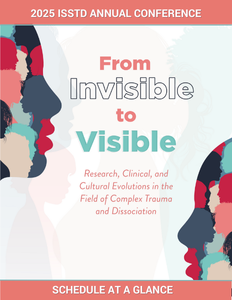Back
Symposium
Bringing Neurobiological Insights on Trauma and Dissociation into Therapeutic Practice
Leveraging Neurobiological Insights to Enhance Clinical Practice for Dissociative Identity Disorder
Thursday, March 13, 2025
8:30 AM – 5:00 PM US Eastern Time
Location: Avenue 34: The Loft

Lauren AM Lebois, PhD (she/her/hers)
Assistant Professor
McLean Hospital / Harvard Medical School
Belmont, Massachusetts, United States
Abstract
Neurobiological insights into dissociative identity disorder (DID) can be powerful tools in clinical practice. However, these findings are often not translated for frontline clinicians who are not neuroscientists, leading to missed opportunities for improved patient care. Here we highlight three key ways in which the neurobiology of DID could serve clinical practice. First, we translate neurobiological findings about DID into psychoeducational tools for patients and their families. This includes understanding DID as a type of posttraumatic adaptation, recognizing that self-states have distinct brain activity, and appreciating the inability of trained simulators to replicate neurobiological patterns seen in genuine DID. Second, we cover recent machine learning studies that show how neurobiological markers could aid assessment of DID symptoms. Finally, we explore how these neurobiological insights can inform the development of novel psychotherapeutic, neurofeedback and neuromodulatory interventions for DID. By beginning to bridge the gap between neurobiological research and clinical application, we aim to empower clinicians and improve outcomes for individuals with DID.
Neurobiological insights into dissociative identity disorder (DID) can be powerful tools in clinical practice. However, these findings are often not translated for frontline clinicians who are not neuroscientists, leading to missed opportunities for improved patient care. Here we highlight three key ways in which the neurobiology of DID could serve clinical practice. First, we translate neurobiological findings about DID into psychoeducational tools for patients and their families. This includes understanding DID as a type of posttraumatic adaptation, recognizing that self-states have distinct brain activity, and appreciating the inability of trained simulators to replicate neurobiological patterns seen in genuine DID. Second, we cover recent machine learning studies that show how neurobiological markers could aid assessment of DID symptoms. Finally, we explore how these neurobiological insights can inform the development of novel psychotherapeutic, neurofeedback and neuromodulatory interventions for DID. By beginning to bridge the gap between neurobiological research and clinical application, we aim to empower clinicians and improve outcomes for individuals with DID.

